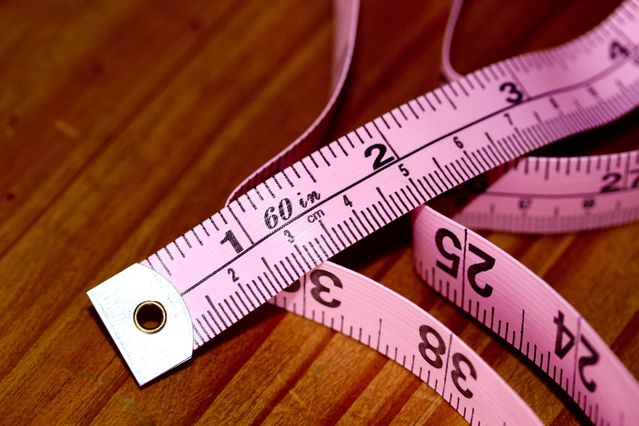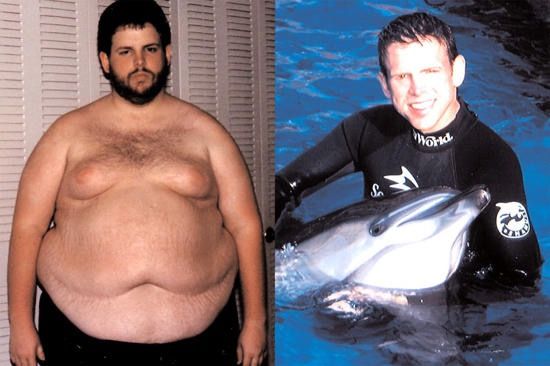Diet
Why Dieting With a Light Switch Mentality Can Be a Turnoff
Believe it or not, being "on" a diet can often lead to going "off" of it.
Posted September 10, 2016

Recently I’ve been reminded of a disturbing trend in the billion dollar diet industry—albeit one that has been pervasive for years. I refer to it as the “Light Switch Mentality” that’s being sold by many organizations, programs, books and so-called experts who proclaim that to lose excess weight, you (we) should be on a diet. But this kind of thinking often leads to the opposite of being on… Being off.
Certainly being on or off has become part of the dieting vernacular. But in my humble opinion, it’s a way of thinking that can potentially lead to more weight gain than weight loss. In fact, it’s while many of us with a dieter’s mentality are on our diets that we’re focused on when we plan on going off. It’s a mindset we’ve been sold as the way to success, when in reality, it can be the way to put on extra pounds.
As someone who started gaining excess weight around first grade, and whose parents immediately took me to a doctor who put me on a strict diet (yes, even at a very young age), I can attest to the fact that the on/off cycle contributed to my continuing to gain weight throughout my youth. Sure, I would take off a few pounds (when I was on). But then I would gain even more weight back (when I was off). By the time I graduated from college, I was clocking in at over 450 pounds. And this was after years and years of constant dieting—the very thing that was supposed to be helping me was actually doing more harm than good.
Thankfully, I was able to remove myself from this cycle after my home electronic scale started reading “ERR” (its internal code for error, since it was not programmed to register any weight above 400 pounds). It’s when I stopped thinking of “dieting” (and being on and off of one) and started embracing healthy eating that I began to make some real headway. Within a year’s time I had dropped most of my excess weight. And sure, I yo-yoed up and down the scale for a couple years after that. I was, after all, recovering from a lifetime of “on and off” behavior. But once I nailed it (reaching a healthy weight for my height and body frame), I’ve stayed at this weight for well over a decade.
But this is where I quickly bring up that damned light switch thinking again. Because many people who see my before pictures want to know my secret to losing over 250 pounds of excess weight without any kind of surgery or medication. They’re not too thrilled when I tell them the secrets are eating less, moving more, getting plenty of sleep and drinking enough water (AKA common sense). And they sometimes go onto register abject horror when I tell them I have to keep all of these mandates in mind even today (otherwise right back up the scale I’d go).
Successfully losing excess weight has nothing to do with a light switch. There’s never a time that we should be on or off. If we’re prone to gaining weight or if we choose to lose excess weight to benefit our mental and physical health, then it’s going to take some work. This doesn't mean food plans can't be extremely helpful. But whether we choose to have a salad for lunch or even if we opt to have some ice cream for dessert, we’ve got to always think about portion size and ingredient content (yes, even when it comes to the salad).
This doesn’t have to mean we are always on and never off. Instead, we can adopt new mindsets and start living life as healthy minded individuals. You know—like those those fantastical types who can eat half a donut and then declare they’re full. (Yes, even I'm dumbfounded by this kind of behavior to this day.) But what these people know that we do not, is that they can have another donut (or whatever) in due time. But those of us on the endless on/off cycle of dieting often think, “I will be on my diet tomorrow (or Monday or come January 1st),” so I better have eighteen donuts today.
On. Off. Not always helpful.
Healthy thinking. A move in the right direction.
And healthy thinking can include well made (meaning clean ingredient) treats that can be easily and moderately worked into our eating plans—whether we’re taking off excess pounds or simply maintaining a healthy body weight.
Although somewhat baffling, this can be triumphant news if we allow it to be. Thinking less of on and off can mean reduced shame and self-punishment (also part of many dieting cycles, mentally speaking). Fact is, you are beautiful at your current weight (inside and out). If you choose to get healthier and drop some of the excess weight, then do so in a fashion that embraces all that life has to offer and try leaving the on/off Light Switch Mentality behind.
At the risk of an eye roll or two, what do you have to lose?



